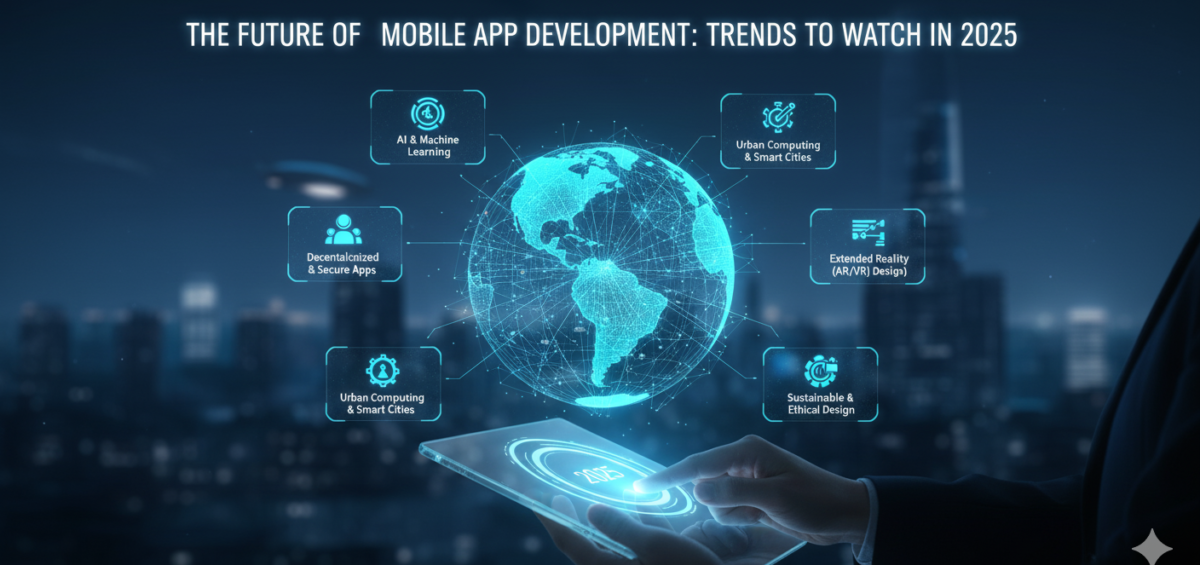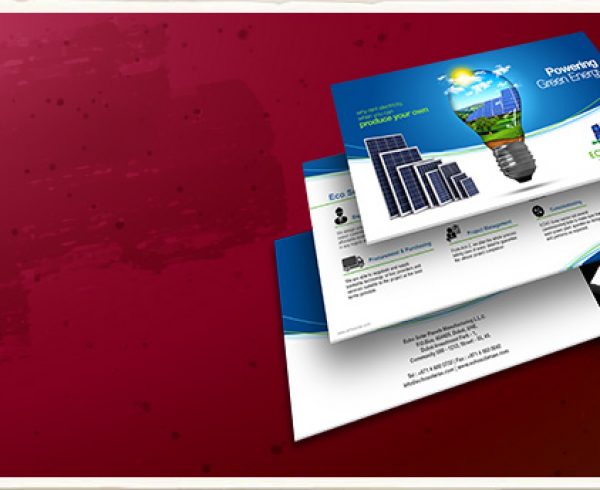The mobile app industry is transforming faster than ever before. As we move through 2025, technology, design, and user behavior continue to redefine how apps are built and experienced. Businesses are investing heavily in mobile solutions to engage customers, boost efficiency, and expand their reach.
In today’s hyper-connected world, mobile applications are no longer just digital extensions of a brand—they’re becoming the primary way users interact with businesses. To stay ahead, companies must stay informed about the latest trends shaping the future of mobile app development.
1. Artificial Intelligence Leads the Way
Artificial Intelligence (AI) is one of the biggest game-changers in mobile app development. From personalized recommendations to predictive behavior and smart assistants, AI helps apps become more intuitive and efficient.
In 2025, AI integration is expected to reach new levels, enabling real-time decision-making and automation within apps. For example, eCommerce apps can now predict what users might want to buy next, while fitness apps create personalized workout plans based on previous performance.
This technological shift is driving deeper engagement and improving overall user satisfaction.
2. 5G Technology Fuels a New Generation of Apps
The arrival of 5G connectivity has revolutionized the mobile experience. With lightning-fast speeds and reduced latency, developers now have the power to create high-performance apps that handle massive data in real time.
Gaming, video streaming, and augmented reality (AR) apps benefit the most from 5G technology. Users can now enjoy immersive experiences without interruptions, making mobile apps more engaging and responsive than ever before.
As 5G networks expand globally, developers and businesses will find endless opportunities to innovate.
3. Cross-Platform Development Becomes the Norm
Gone are the days when apps had to be developed separately for iOS and Android. Cross-platform frameworks like Flutter and React Native allow developers to write one codebase that works across multiple platforms without compromising quality.
This approach saves time, reduces costs, and ensures a consistent user experience. In 2025, these frameworks will continue to evolve with better UI capabilities and faster performance, making app development more accessible to startups and enterprises alike.
4. Enhanced Security and Data Privacy
With users becoming more aware of data privacy issues, security has become a top priority in app development. Multi-factor authentication, biometric logins, and end-to-end encryption are now standard security features in modern apps.
In 2025, we’ll see an increase in apps that use blockchain for secure transactions and transparent data management. Businesses that prioritize security not only protect users but also earn their trust—a vital asset in today’s digital economy.
5. Augmented Reality (AR) and Virtual Reality (VR) Expand Horizons
AR and VR technologies are pushing the boundaries of mobile experiences. With AR filters, 3D visualizations, and immersive virtual spaces, apps are becoming more interactive and entertaining.
Industries like retail, education, and healthcare are already embracing these technologies. Shoppers can try products virtually, students can explore digital classrooms, and doctors can visualize patient anatomy—all through a mobile app.
As mobile devices grow more powerful, expect AR and VR to become standard tools in digital innovation.
6. Internet of Things (IoT) Integration
The Internet of Things (IoT) connects everyday devices—like smart home systems, wearable gadgets, and connected vehicles—to mobile apps. Users can now control lighting, temperature, or even security cameras with a few taps on their phones.
For developers, IoT integration means designing apps that communicate smoothly with multiple devices and platforms. In 2025, this trend will only accelerate, especially in smart cities and industrial automation.
7. The Low-Code Revolution
The demand for faster app launches has led to the rise of low-code and no-code development platforms. These tools allow users to build apps visually, without deep programming knowledge.
Businesses can now prototype and deploy apps in weeks rather than months. This democratization of app development empowers entrepreneurs, startups, and small enterprises to innovate without heavy investment in technical resources.
8. Hyper-Personalization in User Experience
One-size-fits-all apps are a thing of the past. The future lies in hyper-personalization—apps that adapt to individual user preferences, habits, and needs.
Using data analytics and machine learning, mobile apps can now deliver personalized content, notifications, and experiences that feel tailor-made. This not only enhances user engagement but also boosts customer loyalty and brand connection.
9. Wearables and Connected Devices
Wearable technology is reshaping how people interact with digital services. Smartwatches, health trackers, and other connected devices rely on mobile apps to monitor real-time data and deliver actionable insights.
Developers are now creating apps that sync seamlessly with wearables, providing users with more control and awareness over their daily activities. The integration of wearables into app ecosystems is expected to expand dramatically in 2025.
10. Sustainability and Energy Efficiency
As digital responsibility becomes a global priority, developers are focusing on sustainable app design. This means optimizing app performance to use less energy, reducing background activity, and creating eco-friendly user experiences.
Energy-efficient coding not only helps preserve battery life but also contributes to a greener digital environment. Businesses adopting sustainable digital practices will gain favor with environmentally conscious consumers.
11. Voice-Activated Interfaces
Voice search and commands are transforming how users interact with apps. Assistants like Alexa, Siri, and Google Assistant have paved the way for voice-driven experiences.
In 2025, expect more apps to adopt voice technology, offering users hands-free navigation, accessibility features, and instant responses. This trend is particularly beneficial for eCommerce, entertainment, and smart home applications.
12. Cloud-Integrated Mobile Apps
Cloud technology continues to play a key role in mobile app scalability and performance. Apps integrated with cloud systems can handle large volumes of data, support real-time collaboration, and deliver faster updates.
This technology also makes it easier for teams to manage remote data and user access securely. As businesses expand digitally, cloud-native apps will dominate the next phase of mobile innovation.
13. Super Apps: The All-in-One Experience
Super apps—platforms that combine multiple services like messaging, payments, shopping, and booking into one—are gaining momentum globally.
These apps simplify the user experience by offering everything within a single interface. In 2025, expect to see more brands adopting this model to provide integrated services that keep users engaged longer.
Dubai: A Hub of Innovation and Growth
Dubai has rapidly become a global technology hub, known for its futuristic infrastructure and digital innovation. Businesses across sectors are embracing Mobile App Development in Dubai to meet growing consumer demands for smart, efficient, and user-centric solutions.
With an expanding startup ecosystem and government support for digital transformation, Dubai is positioning itself as one of the most advanced mobile app markets in the world.
The Role of Design and Development Expertise
As app development trends evolve, having a strong digital foundation is key. Partnering with a trusted Web Design Company ensures that every app not only functions seamlessly but also delivers a visually appealing, user-friendly interface.
Similarly, professional Website Development Services help brands maintain consistency across all digital platforms, from mobile apps to websites. This unified digital presence enhances credibility and customer experience.
Why UI/UX Still Matters Most
Even with the best technology, poor design can ruin a great app idea. User Interface (UI) and User Experience (UX) design remain at the heart of successful app development.
A skilled Web Designer in Dubai can craft intuitive layouts, smooth navigation, and stunning visuals that make users fall in love with an app instantly. In 2025, design thinking will continue to drive the connection between technology and human emotion.
Conclusion
The future of mobile app development is an exciting blend of innovation, intelligence, and creativity. As we move deeper into 2025, trends like AI integration, 5G connectivity, AR/VR, and sustainability will shape how businesses and users interact in the digital world.
For companies, the opportunity lies in embracing these changes early—building smarter, faster, and more engaging apps that align with evolving market demands.
Whether it’s developing cutting-edge apps, crafting responsive websites, or enhancing user experience, the next chapter of mobile innovation is just beginning—and it’s one you won’t want to miss.









